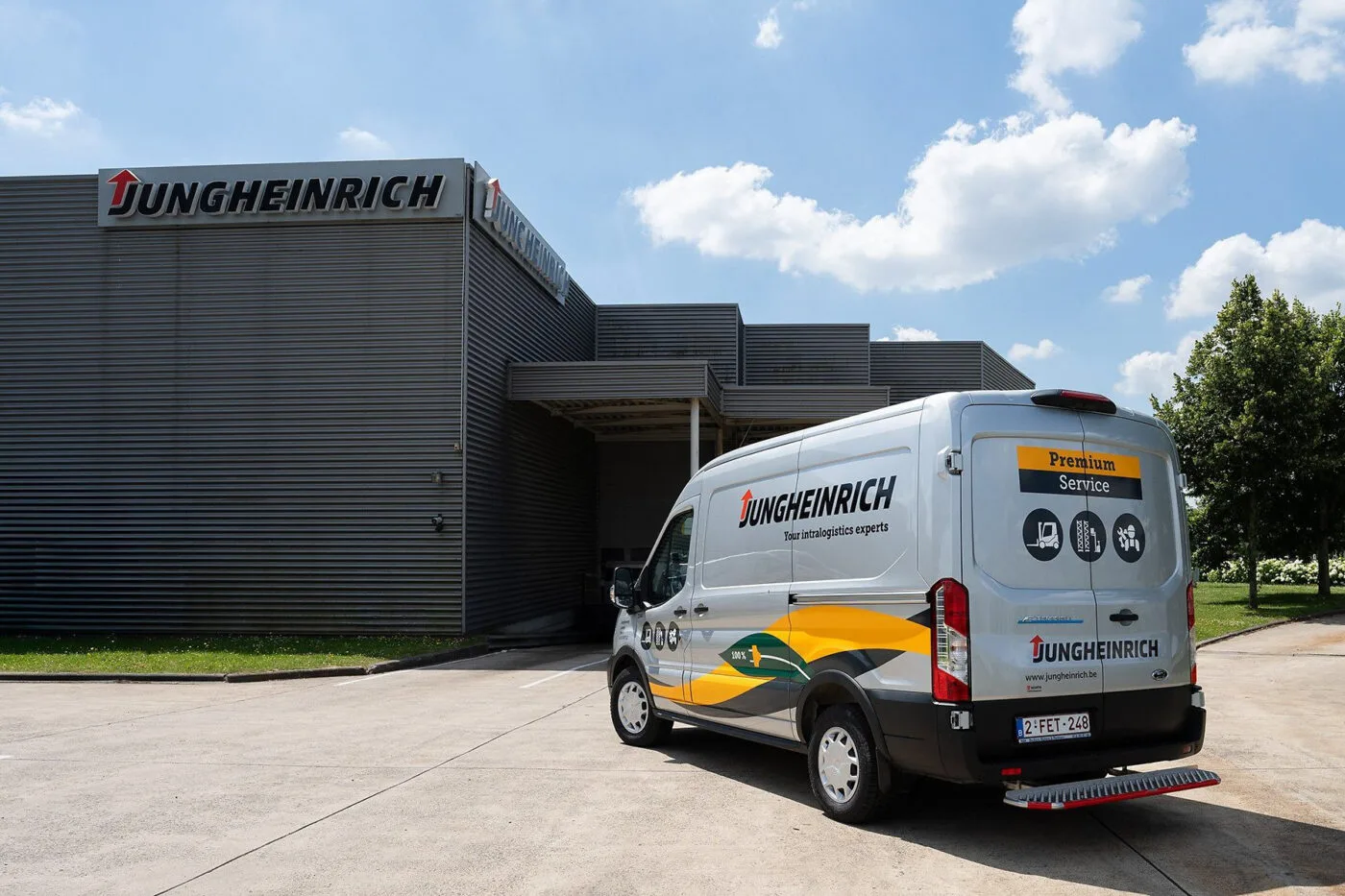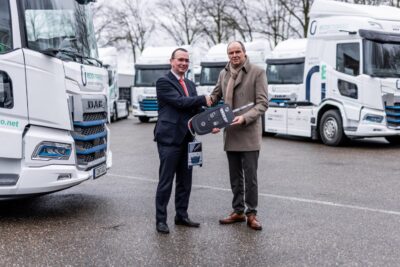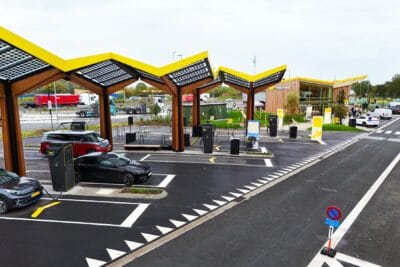Jungheinrich invests in EVs for its customer service fleet
Jungheinrich places a lot of stock in its its customer service. The company manufactures intralogistics solutions, i.e., forklifts, pallet trucks, and other industrial trucks used to move goods and merchandise within warehouses and between buildings—some of which are electrically powered. This makes these vehicles essential for the smooth operation of customers’ businesses – if a vehicle breaks down, nothing works anymore, in the truest sense of the word. That is why more than 6,300 customer service technicians are deployed in 42 countries to be quickly on site with customers thanks to a particularly dense service network – and to get vehicles and systems back up and running quickly in the event of a malfunction.
And these vehicles for service personnel are now to be increasingly converted to electric drives. The Hamburg-based company is not really concerned about the operational readiness of its customer service fleet, as it has found “practical and tailor-made solutions” for the “typical challenges of electric mobility, such as limited ranges and inadequate charging infrastructure.” For example, various models were tested and evaluated under real-world conditions, and then “a portfolio of specific models” was defined.
Based on its own experience, the Jungheinrich team has also switched to a dynamic route planning model, which means that most service technicians cover less than 100 kilometers per day, which is possible even in adverse conditions with most electric transporters. Diesel-powered vehicles are currently only used in time-critical exceptional cases involving long distances. “The technology and charging infrastructure for electric vans is constantly evolving,” says Mathias Lentfer, Vice President After Sales at Jungheinrich. “We are confident that, with ongoing progress and the practical experience to date, we will achieve our goal of 50 percent electrification by 2030.”
According to Jungheinrich, it laid the foundation for this in 2022 with initial pilot projects in Norway, Hungary, and Finland. The rollout then began in earnest and picked up speed. “The global electrification rate is set to be five times higher by the end of 2025 than it was the previous year,” the company said.
However, the exact pace and current distribution of electric vehicles in the service fleet vary greatly from market to market. In four countries – Norway, the Netherlands, Switzerland, and Ireland – a rate of over 30 percent is expected to be achieved this year. This rate is planned for Austria, Belgium, Finland, and Slovakia in 2026, and for New Zealand, Sweden, Greece, Portugal, Latvia, and Lithuania in 2027. “Germany, Denmark, and France are set to reach the 30 percent mark in 2028. By that time, around 2,000 electric vehicles will already be on the roads in after-sales services across the group,” says Jungheinrich.
The plans for Switzerland are particularly ambitious: not only is the 30 percent electric quota to be achieved there this year, it is to be significantly exceeded. By 2026, three out of four customer service vehicles in the Alpine republic are to be fully electric.
“The systematic electrification of our service fleet is not only pragmatic, but also an investment in a clean and better future,” says Lentfer. “It enables us to reduce our carbon emissions and operating costs while making a measurable contribution to the transition in the the transport sector. Compared to conventional after-sales service vehicles with combustion engines, electric models do not produce greenhouse gas emissions if they are charged with electricity from renewable sources.”
This article was originally published by Sebastian Schaal for electrive’s German edition.





0 Comments